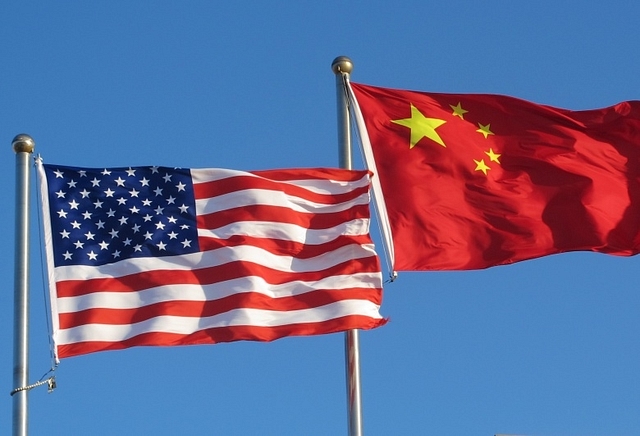
As US And China Edge Towards Trade War, Core Issue Is This: How To Compensate Losers From Globalisation
While there are many more losers from globalisation, the key to ensuring all-round commitment to free trade depends on finding a mechanism to compensate the losers.
With China announcing retaliatory tariffs to counter US President Donald Trump’s measures to protect American jobs in some metal-working industries, one can no longer rule out the possibility of a full-blown trade war that imposes costs on the global economy. While it is entirely possible that back-channel talks between US and Chinese trade negotiators may end up defusing the situation over the next two months before the tariffs kick in, what we should be clear about is one simple point: we cannot rule out future trade wars without addressing the root causes on why countries turn protectionist.
Economists like to denounce protectionism with bland assertions that tariff wars do not create winners; there will only be losers all around. This is true, but if they don’t come out with a better way to prevent such trade wars in future, these things will happen.
Protectionism and trade wars happen for two reasons: one reason is political, where one country (or a group of countries) wants to impose costs on another (eg: the Iran sanctions) for political reasons. But the more important reason is that protectionist measures are usually initiated by losers in the globalisation game. The US action follows the hollowing out of US manufacturing and the loss of jobs to a rising Asia, especially China. The US has effectively acknowledged that it has lost the manufacturing game, and hence the need for tariffs.
While there are many more losers from globalisation – including India in some manufacturing sectors – the key to ensuring all-round commitment to free trade depends on finding a mechanism to compensate the losers.
While tariffs provide temporary relief, they are a blunt instrument to use when compensating losers. For true compensation involves not only a temporary respite from import competition, but other actions that will help the losers invest in identifying new areas where they could have competitive advantage and reskill the people who lost out from competition.
In a sense, the problem with globalisation is the same as that with automation: job losses can be instant, but remedies take a long time to surface.
This job of making constant adjustments to competitive trends is usually left to nation-states and their governments, but if one leaves out competent (and often autocratic) governments in Asia, the ability to think strategically on driving investments towards new competitive areas is rare. Many democracies – especially large and diverse ones like America and India – are unable to create the kind of focus required to make the shift from uneconomic sectors to productive sectors. Of course, the job can be done by an entrepreneurial culture, but the outcomes in this case may not necessarily be ideal. For example, India has many entrepreneurs driving digital technologies, but given unreformed labour laws, these efforts are resulting in more loss of jobs through automation. It is creating a skill dichotomy: in a very high skill environment, people earn very high salaries (artificial intelligence, machine learning, etc); in the low-skill mass environment, jobs and wages are barely enough to keep the wolf from the door. This reality is partly playing out in the Indian IT industry, where jobs at the high-skill ends are paying huge salaries, while the entry-level positions are stagnating in terms of incomes. It is also playing out in digital banking, where techies and top managers are making a pile, but jobs at the low-skill end pay a pittance and are temporary in nature (those who ensure KYC compliance, etc).
The poor outcomes in the National Democratic Alliance’s Make in India initiative suggest that governments are not good at making strategic choices in a complex global competitive environment. Small and technocratic governments like Singapore or Ireland may be good at this, but not countries like India, despite having large establishments focusing on skill development. We have to depend on our entrepreneurs figuring out what works, and the outcomes may be suboptimal.
Clearly, the next major challenge for global trade is the tricky one on how losers should be compensated, and (more importantly) on how this compensation should be channelled in order to build competitive advantage rather than just allowing tariffs to fatten the profits of a few sectors temporarily.
Right now, organisations like the World Trade Organization are losing importance as the world slips into protectionist sentiment. Multilateralism is being replaced by bilateralism on trade. Reversing the trend towards de-globalisation will take time, for economists have not figured out a way to compensate losers in an effective way.
This is the real challenge to globalisation – as it is on automation. The next few years must be used productively by economists to go beyond the obvious in promoting free trade by figuring out a sensible way to compensate losers that it results in a real improvement in competitiveness.